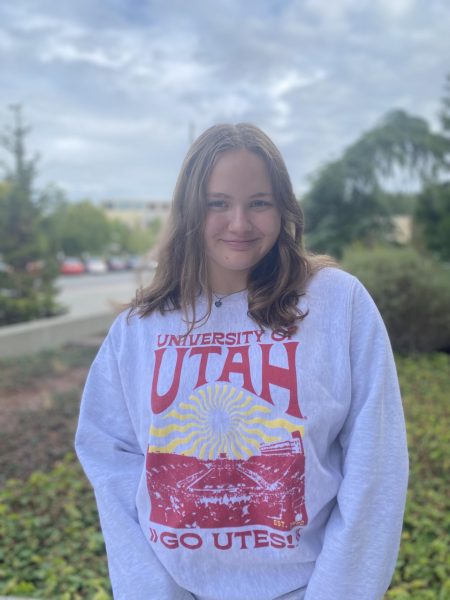The LGBTQ Community Is Not Your Source of Entertainment
May 27, 2022
Queer people have finally received what we wanted: representation in media. Or, have we? In modern media, LGBTQ relationships are sexualized and fetishized for cisgender and heterosexual — or “cishet” — pleasure.
With the rise in popularity of queer relationships in books, you would think that this would finally allow for the LGBTQ community to receive a spotlight on their stories. However, the only really popular books with LGBTQ representation among readers these days are written by cishet people — see “The Song of Achilles” by Madeline Miller. Queer authors exist, but apparently, it is too difficult to read books about LGBTQ people by actual LGBTQ people. If you think I sound ridiculous, let me describe some familiar storylines to you that are actually intense sexualization and fetishization: the big, middle aged, muscular man starts a relationship with the young, feminine, delicate boy (see: “Call Me By Your Name”); the masculine lesbian who has been out for years seduces the inexperienced goody two shoes who always thought she was straight; bisexual people jumping between partners or cheating; the list goes on.
Despite the cishet obsession with LGBTQ relationships in media, it is still worrisome to be queer in today’s society. In most cases, as written in an article by Dubeat, queer couples are sexualized intensely online just to continue to face discrimination in the real world. LGBTQ relationships are all fun and games for straight people until they are not — they will sexualize my community to the highest extent, but heaven forbid my future wife and I adopt a child, right? It is almost impossible to win. Representation in the media comes at the cost of becoming someone’s fantasy. We get no representation and people go back to pretending like the LGBTQ community does not exist. Why it is so hard to find a happy medium between not being homophobic or inappropriately dedicated to queer relationships as a cishet person is beyond me, but it seems like it is very difficult. LGBTQ people do not feel shame for who they are and do not face repetitive political rebuts towards our rights only for cishet people only to remember we exist when we are cast as a few traditionally attractive celebrities for them to sexualize in the next up and coming movie.
As written in The Revival Zine, “According to GLAAD’s 2018 annual TV Diversity Report, 8.8% of 857 series regulars on TV identified as LGBTQ, a record high.” In spite of these rising numbers, it does not take away the fact that the typical queer relationship in TV is toxic. For example, one of television’s most loved series, “Grey’s Anatomy,” features two iconic relationships for queer representation — Callie and Arizona in earlier seasons, then Nico and Levi in later ones. I love Grey’s just as much as the next person, but of course, the token lesbian and gay relationships between regulars on the show are the ones that cannot be model relationships. It is a drama, so I am not saying that every single one of the cishet relationships is nicely written on Grey’s — because that is definitely not the case — but a healthy relationship with minimal arguments has been seen on the show before. Why does Shonda Rhimes never let her only main LGBTQ relationships be one of those healthy couples? I wish I had an answer.
No matter how far LGBTQ equality comes, it seems that there will always be some sort of inescapable form of homophobia presented in increasingly unique ways. I am overjoyed that my community is finally receiving any representation, but I would almost dare to say that I would rather us be nonexistent in media than for the LGBTQ community to be seen as nothing more than a few sexual fantasies in books, movies, shows, and even in day-to-day normal life.
Queer representation is not always bad. Movies like “Love, Simon” and “Booksmart” highlight LGBTQ main characters that are more than just a coming out sob story. These two films include aspects of the coming of age genre as well as navigating love through the queer eye in a positive light. If you are looking for a place to start refreshing the idea of LGBTQ characters that you are used to being shown in media, these are two great films to start with.
Impartiality between cishet people and queer people is nowhere near close to being reached. It is time for LGBTQ couples to be seen above the physical implications of their pairings. We have a ways to go before equity is reached, but where we are at as a society right now is considerably impressive compared to the past — the only thing we need to improve now is for someone to start the trend.


